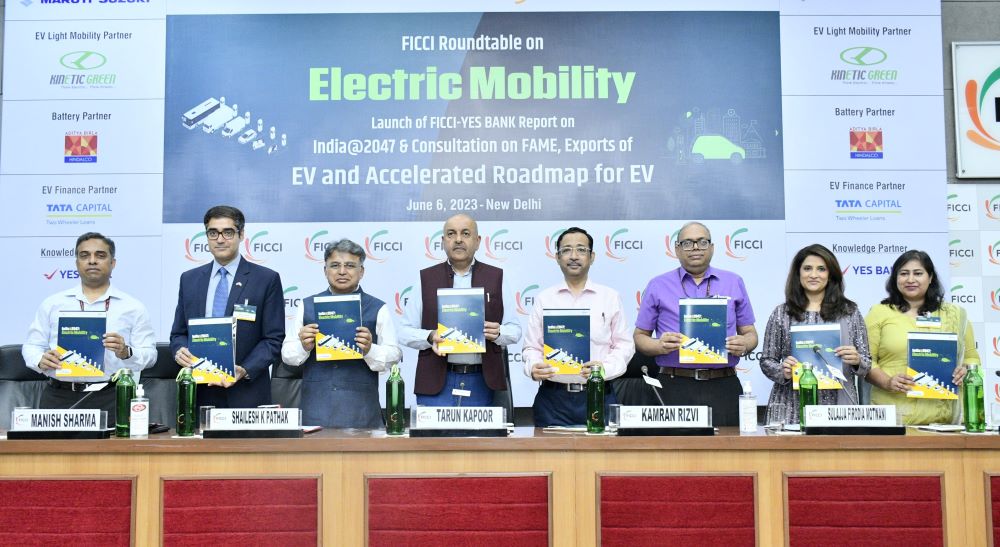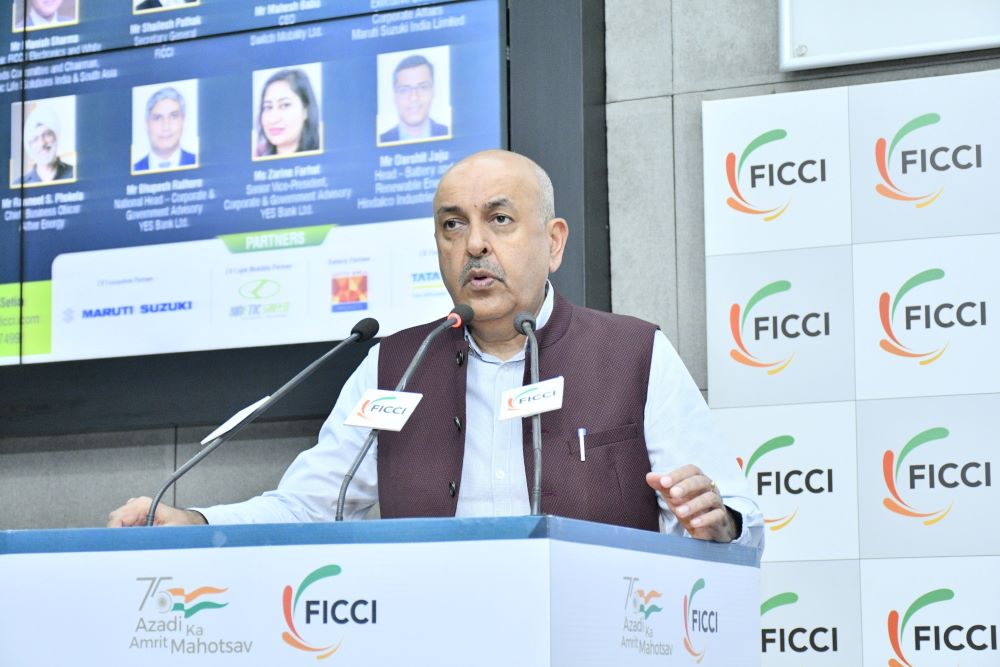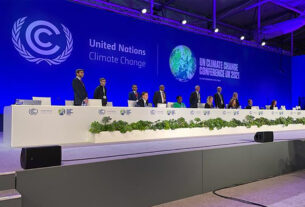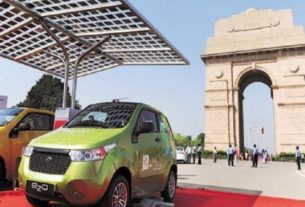Addressing the ‘FICCI Roundtable on Electric Mobility’, Mr. Tarun Kapoor, Advisor to the Prime Minister, PMO, stated that the time for electric vehicles (EVs) in the country has come and India needs to move in this direction mainly because of our energy security and environmental concerns. “From government side also, we now want to focus on driving this sector so that not only do we have more and more electric cars, buses and two-wheelers on the road, but we also become a manufacturing hub for the world,” he added.

Mr. Kapoor while highlighting the potential of the Indian electric market said that the auto sector in India is already well established which means all leading players are already in the market. “It is just about transitioning which should be easy and all stakeholders need to work together to strengthen the EV sector,” he stated.
Mr. Kapoor further stated that in case of 2-wheelers, we should aim to transition close to 100 per cent in next 5-7 years and there is no reason why we can’t do it, he emphasized. “The price has come down slightly as India is a very price sensitive market and therefore, the price has to come down further. The support from government including subsidies, taxes and policy reforms will not take us beyond a point but it is the industry who must take it forward,” he asserted.

Speaking on the adoption of electric vehicles in public transport, Mr. Kapoor said that the government will come out with policies to get public transport to most of the Indian cities. We will also ensure that this happens with electric vehicles and not with diesel only. “You can look forward to very large support from the government so that not only we will see transition from diesel buses, but we will see more and more electric public transport which is missing,” he added.
He also urged the industry for more investments in battery manufacturing along with the entire value chain of battery manufacturing. “Battery manufacturing requires more innovation and not being dependent on lithium batteries only,” noted Mr. Kapoor.
Mr. Kamran Rizvi, Secretary, Ministry of Heavy Industries, Govt of India said that the Indian automobile industry is a matter of pride for the country. He stated that electric vehicle sector in India has great chance to become a leader and urged the industry to focus on making batteries lighter and reduce the dependence on rare earth magnets which are currently being imported. “EVs present a great chance for India to compete with the world and let us ensure that the Indian EV story become the global EV story,” added Mr. Rizvi.
Industry present at the roundtable sought extension of FAME II subsidy scheme by another 5 years when it comes to an end by March 2024. This was the ask from the industry across the XEV segment i.e. 2W, 3W, 4W and Buses.
Dr. Hanif Qureshi, Joint Secretary, Ministry of Heavy Industry said that government is looking atfeedback from the stakeholders for the future roadmap for EV sector when FAME II comes to an end in 2024. He said that we are discussing what are the technologies and areas to be supported going forward.
Mr. Sudhendu Jyoti Sinha, Adviser, NITI Aayog stated that in the last 5 years, the kind of pace which we have been able to achieve that is what makes the world to look up to India as happening place. “In times to come, the EV sector is going to be major growth story for India, and you (industry) will be the partner to it,” he added.
Ms. Sulajja Firodia Motwani, Chair, FICCI Electric Vehicle Committee and Founder & CEO, Kinetic Green Energy & Power Solutions Ltd said that as the global economies and India work towards achieving their net zero goals, we strongly believe that e-mobility has a great role to play in India’s success and dominance in its green vision.
Mr. Manish Sharma, Chair, FICCI Electronics & White Goods Committee and Chairman, Panasonic Life Solutions India & South Asia stated that we have to ensure that the concept of total cost of ownership in EVs is explained to consumers in a simpler manner.
Mr. Shailesh Pathak, Secretary General, FICCI appreciated the adoption of electric vehicles over the last decade and set forth the aspiration of full transition to EVs in the next decade, fueled by the entire EV ecosystem. This would reduce fossil fuel imports and reduce emissions, he added.



